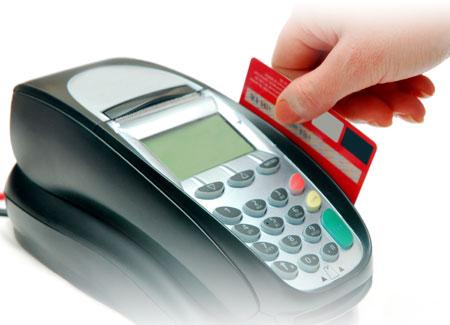 In previous articles, we’ve been warning against getting overly aggressive when looking for a high risk merchant account — in our relatively small payment world, contacting several payment processors and initiating an application process with each one of them at the same time would cause your application package to eventually reach the same underwriters and acquirers over and over. This never works in your favor for reasons that should be easy to understand. On the one hand, such behavior indicates desperation on the applicant’s part, which in turn raises suspicions: this merchant’s package is all over the place, so she must be having trouble getting approved — what is the problem? Just as likely, a reasonable acquirer may determine that a merchant which is shopping around so actively would be happy to switch to a different service provider just as soon as someone offers him a credit card rate lower by a quarter of a percentage point — so why bother with such a merchant? The point is that it is a good idea to be cautious when getting your first merchant account and go through one application at a time.
In previous articles, we’ve been warning against getting overly aggressive when looking for a high risk merchant account — in our relatively small payment world, contacting several payment processors and initiating an application process with each one of them at the same time would cause your application package to eventually reach the same underwriters and acquirers over and over. This never works in your favor for reasons that should be easy to understand. On the one hand, such behavior indicates desperation on the applicant’s part, which in turn raises suspicions: this merchant’s package is all over the place, so she must be having trouble getting approved — what is the problem? Just as likely, a reasonable acquirer may determine that a merchant which is shopping around so actively would be happy to switch to a different service provider just as soon as someone offers him a credit card rate lower by a quarter of a percentage point — so why bother with such a merchant? The point is that it is a good idea to be cautious when getting your first merchant account and go through one application at a time.
But does the same principle hold if you’ve already got that all-important first high risk merchant account? Should you be now just going about your business or might it be a good idea for you to be looking for a second one as an insurance policy? Well, the answer, of course, is “it depends” and we’ll see why in a second. But before we do that, we should note that, whatever decision you make, your very first priority should always be to keep your existing merchant accounts in perfect standing with your processor — it is much easier to keep a high risk merchant account that you already have than it is to get a new one, particularly if a previous one has been shut down. Now let’s consider the merits of having a second one.
Getting an Insurance Policy
There is a really big reason for a business to be looking for multiple merchant accounts — insurance against a possible termination of one of your active accounts. This is not usually a big issue in the low risk segment of the industry, simply because terminations in that area are rare. However, in the high risk payment processing realm a merchant account shutdown is something that is always somewhere in the back of your mind.
Furthermore, a high risk merchant account typically takes weeks to be approved and set-up, as compared to a time frame of a just few days for the low risk type. So if, say, an adult website’s credit card processing service is shut down today, it may take that merchant a month or more for it to find a replacement, if it can find one at all. In the meantime, the merchant is unable to accept its customers’ card payments and that is no fun.
Additionally, getting approved for a merchant account is much more easily achieved while your business is taking credit cards than it is right after your latest processor has shut you down. As is so often the case, in our industry payment processing is more easily available to clients who don’t really need it, whereas those who do need it badly are often out of luck. In any case, it does sound as though having insurance in the form of a second processing facility is a good strategy. Yet, using multiple merchant accounts is not for everyone.
Should You Be Looking for a Second Merchant Account?
The thing is that every merchant account comes with its own set of terms and conditions and the credit card processing volume is among the most important ones. As we’ve previously noted, high risk processors are unlikely to bother looking at a merchant whose volume is below a certain threshold — in the case of UniBul, we ask that international merchants have at least $50,000-worth of monthly processing volume, before we examine their paperwork. Moreover, the terms of service — processing rate, payout schedule, reserve amount, etc. — are directly related to the size of that volume: the higher the volume, the better the terms. You probably see where we are heading with this. What happens when you split up your processing volume between two (or more) merchant accounts? Well, the outcome mostly depends on your foresight when setting up these accounts.
Usually, when filling out the application form for a new merchant account, you would state your full processing volume, which makes perfect sense, as it helps you get the best terms available. However, later on, having set up that all important first account, you initiate a second application where you would typically state the same amount you entered in the first one, even if you do not intend to give that second processor your entire business — after all, you want to keep the first one active; if nothing else, for insurance purposes. And therein lies the issue — if you get an approval, you will get it in no small part based on the processing volume stated in your application paperwork and if you can’t deliver on that volume, you risk having your account terminated altogether. Yes, that is precisely what is at stake, no more and no less. Processors would rarely be willing to renegotiate the terms of service to reflect your lower actual volume — they would hate to be processing fewer transaction than initially stated to begin with, not to mention that, as you’ve already given them inaccurate information, why should they trust you now?
In our hypothetical scenario, what you should have done instead was to enter in each application form only the amount you intended to process with the respective service provider. Yes, you would have been given less favorable terms, but you would not have risked compromising the good standing of your accounts. The thing, of course, is that not everyone has this option available. For example, if a European merchant contacted us and told us that her monthly volumes were, say, $150,000, we would have been happy to evaluate her paperwork and work with her, if everything checked out fine. However, if that same merchant stated a monthly volume of only $50,000, because he had already committed $100,000 to another payment processor, we would be much less likely to initiate the application process. Of course, other processors might well be willing to work with her, but if the business is of the high risk variety we specialize in, that is highly unlikely.
So you can see why having a fall-back payment processing option is not for everyone. Yes, high volume businesses should definitely set-up multiple high risk merchant accounts, so as to spread the risk. Smaller merchants, however, may be better off concentrating heir attention on growing their business and maintaining a good relationship with the payment processor they already have. Setting up a second processing solution will only make sense once they’ve built up their volume to a sufficiently high level.
What Our Customers Are Saying
UniBul is ranked based on 159 user reviews.
UniBul enables American and international businesses to accept payments for the things they sell on their websites.

















